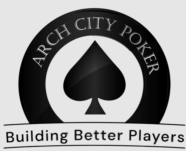Mastering the Game: A Deep Dive into Poker Strategy Training

Poker is not just a game of chance—it's a game of skill, psychology, and decision-making. While luck may influence short-term outcomes, consistent winners know the real secret: effective poker strategy training. Whether you’re a novice trying to understand hand rankings or an experienced player aiming to sharpen your edge, dedicated training can elevate your game to a whole new level.
Why Poker Strategy Training Matters
To the casual observer, poker might appear as a game of bluffing and bold moves. However, beneath the surface lies a complex web of mathematical calculations, psychological analysis, and strategic planning. Poker strategy training enables players to:
-
Understand pot odds and implied odds
-
Master position-based gameplay
-
Identify betting patterns and player types
-
Avoid common pitfalls like tilt or overplaying
-
Develop a long-term winning mindset
Training isn’t just for beginners; even professional players constantly refine their strategies to stay ahead of the competition.
Key Elements of Effective Poker Strategy Training
1. Mastering Poker Fundamentals
The first step in poker strategy training is learning the foundational elements:
-
Hand Rankings: Know which hands beat others.
-
Position Play: Understanding the power of playing in late position.
-
Betting Basics: Learn when to bet, call, raise, or fold.
-
Starting Hands: Know which hands to play in which positions.
Having a solid grasp of these basics builds a strong foundation for more advanced concepts.
2. Understanding Opponent Behavior
One of the greatest skills a poker player can develop is reading opponents. Training teaches you to classify players as loose, tight, aggressive, or passive. By analyzing betting habits, timing tells, and physical cues (in live games), you can make better decisions based on how your opponent plays rather than just your own cards.
3. Probabilities and Math
Good poker players are not just intuitive—they are mathematically sound. Training in this area focuses on:
-
Pot Odds & Expected Value (EV): Determine whether a call or raise is profitable.
-
Combinatorics: Estimate how many possible hands beat yours.
-
Equity Calculations: Tools like PokerStove help calculate your winning chances.
Without understanding the math, even the most aggressive plays can become costly mistakes.
Online Poker Strategy Training Tools
Technology has transformed how players train for poker. Today, a variety of online platforms, tools, and resources make learning accessible to all.
1. Poker Training Sites
Websites like Run It Once, Upswing Poker, PokerCoaching.com, and Advanced Poker Training offer structured lessons from world-class players. These platforms include:
-
Video tutorials
-
Hand analysis
-
Strategy quizzes
-
Simulated environments for practice
These sites often divide content by skill level, allowing beginners and professionals to learn at their own pace.
2. Poker Solvers
GTO (Game Theory Optimal) solvers like PioSOLVER and GTO+ are game-changers in the poker world. These tools allow players to simulate different hands and board textures to determine the best possible plays in any given situation. While they require a bit of a learning curve, mastering solvers can give you a serious edge.
3. Hand Review Software
Tracking and reviewing past hands is essential to improving. Software like PokerTracker and Hold’em Manager helps you:
-
Track win/loss rates
-
Identify leaks in your game
-
Analyze hands in detail
-
Understand long-term trends
By identifying your own tendencies, you can correct poor decisions and reinforce positive patterns.
In-Person and Live Poker Strategy Training
While online tools are fantastic, live poker strategy training still has unique value. It offers personal guidance, immediate feedback, and an opportunity to interact directly with instructors and fellow players.
Poker Camps and Seminars
Many professionals and poker academies host live events that include multi-day training, live coaching, and real-time gameplay analysis. Attending such events can significantly enhance your confidence and strategic understanding.
Group Study and Coaching
Training with a group or hiring a coach allows for personalized feedback. One-on-one coaching sessions can target your specific weaknesses, whether it's folding too often in certain spots or overvaluing weak hands.
Common Mistakes to Avoid in Poker Training
1. Ignoring Mental Game Training
Poker isn’t just about skills—it’s also about emotional control. Mental game training focuses on:
-
Managing tilt
-
Developing discipline
-
Building patience
-
Avoiding burnout
Ignoring this aspect can derail even the most well-trained players.
2. Information Overload
With so much content available, players often overwhelm themselves trying to learn everything at once. Focus on one area at a time—master it, then move on.
3. Not Practicing Enough
Watching training videos is important, but without active practice, it won’t stick. Apply what you’ve learned regularly at the tables, whether in online micro-stakes or home games.
How to Build Your Poker Strategy Training Plan
1. Set Clear Goals
Are you training to become a tournament player or cash game grinder? Do you want to play live or online? Knowing your goals will help tailor your training program.
2. Create a Study Routine
Schedule consistent time for study and play. A good balance might be 70% play and 30% study, with adjustments based on your progress.
3. Track Progress
Use training logs, hand histories, and performance reports to measure growth. Celebrate wins and learn from mistakes.
4. Stay Updated
Poker evolves. New strategies, solver outputs, and meta-games develop over time. Staying current is key to staying competitive.
Conclusion:
Poker is a lifelong journey. No matter your experience level, poker strategy training is essential to improving your game, staying ahead of your opponents, and maximizing your earnings. From mastering fundamentals to using cutting-edge solvers, training provides the tools and mindset needed for long-term success.
- Art
- Causes
- Crafts
- Dance
- Drinks
- Film
- Fitness
- Food
- Games
- Gardening
- Health
- Home
- Literature
- Music
- Networking
- Other
- Party
- Religion
- Shopping
- Sports
- Theater
- Wellness


